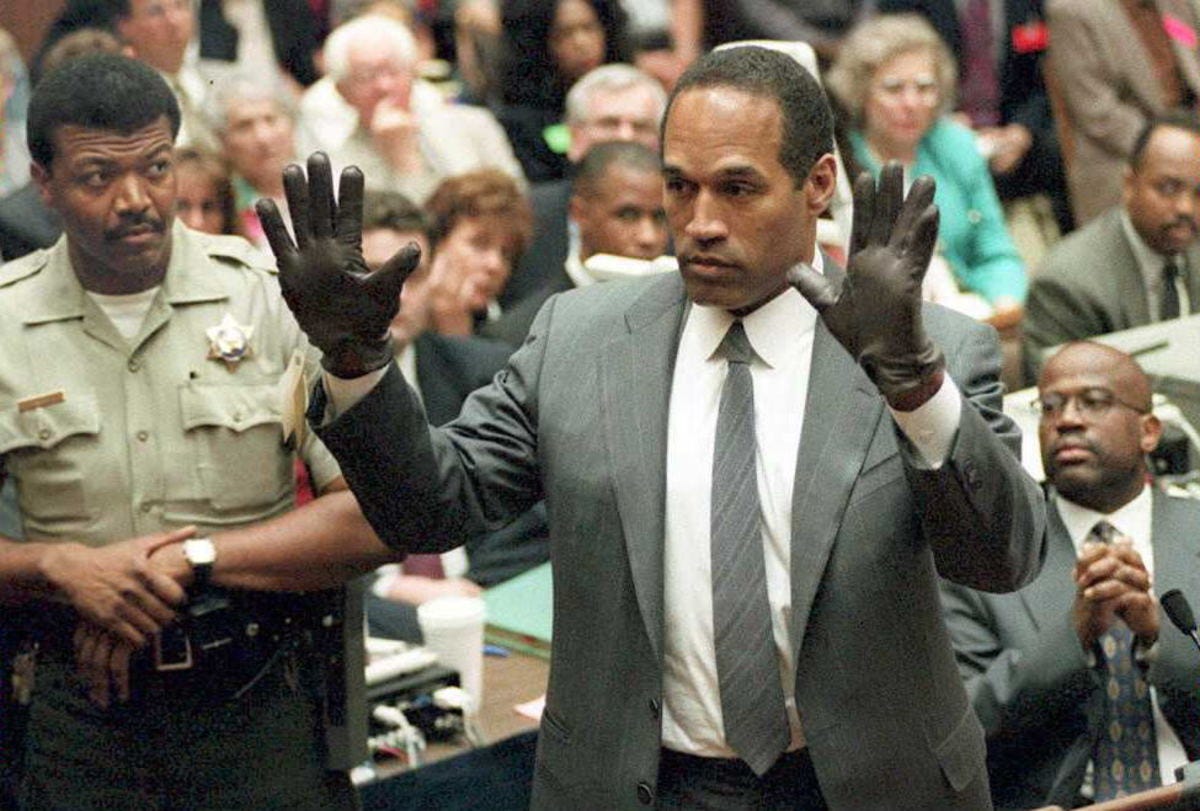OJ Simpson breathed his last three days ago, confined to a sick bed. Had things gone differently at his trial for double murder thirty years earlier, he could have met his end strapped to a gurney and subjected to lethal injection.
Simpson’s defense at trial was the very best money could buy. Despite the surfeit of damning forensic evidence, including a glove bearing DNA from both victims found in Simpson’s possession, the defense – as is its job – undermined so much of the prosecution’s evidence and testimony so as to create reasonable doubt in the jury’s minds (“If the glove don’t fit, you must acquit!”). But there was another force at play in Simpson’s trial, that being an instance of jury nullification.
Judges instruct juries to deliberate on the facts alone and never on the law, so jury nullification is an instance of a jury disregarding those instructions to announce a finding which expresses judgment about the law at issue rather than about the defendant’s guilt or innocence. Libertarians widely celebrate jury nullification as the citizenry’s check on government’s power for the prosecution of so-called “victimless” crimes, such as offenses relating to drugs or prostitution. Yet when a jury strays from the court’s instructions to consider factors extrinsic to the record, you can get a result which nullifies even the crime of murder, which is anything but victimless.
In an interview for ESPN’s documentary series OJ: Made in America (2016), Simpson juror Carrie Bess admitted that she and “90%” of the others on that jury found Simpson not guilty based on social justice inequalities stemming from Los Angeles’ devastating Rodney King riots just two years prior. No one would say that such concerns are not within the jury’s rights – after all, jurors are the ones who have to live with their verdict’s consequences – but it is easy to see how juries could stray from the evidence in record to evaluate all sorts of external factors. In a reversal of nullification, it is easy to see how a jury could conclude guilt based on considerations far beyond those adduced to the record.
Would you celebrate jury nullification if a jury judged you irrespective of a crime’s elements but based instead on your politics? Are you a known anti-taxer/anti-vaxxer? That jury’ll hang you faster than you can spit! Was your roommate’s uncle’s barber’s mechanic at J/6? Surely you’re an unrepentant insurrectionist! We see memes which jest about ATFers reviewing someone’s social media posts as evidence of someone’s guilt, but if juries are encouraged to evaluate data and circumstances not in the record, judicial process will be distorted in ways which may not always merit celebration.
Juries have, as they should, the ultimate say on whether a criminal statute will apply to a given defendant. We ask our lay jurors to fulfill a solemn duty, which may entail personal difficulty for them. Hopefully we don’t unduly impose on them by regularly expecting juries to consider factors not adduced by the parties to the case.





The thing that I recall vividly was my biology teacher saying to me "If you understand anything about DNA then you would understand that it is impossible for the murder to have been committed by anyone other than OJ."
As much as I would like to blame the jury for thinking weighing the "wrong" factors in their decision I ultimately place the burden on the prosecution. They failed to anticipate the mood of the jury and the importance of the charisma of Cochran, OJ and the rest of the legal dream team.